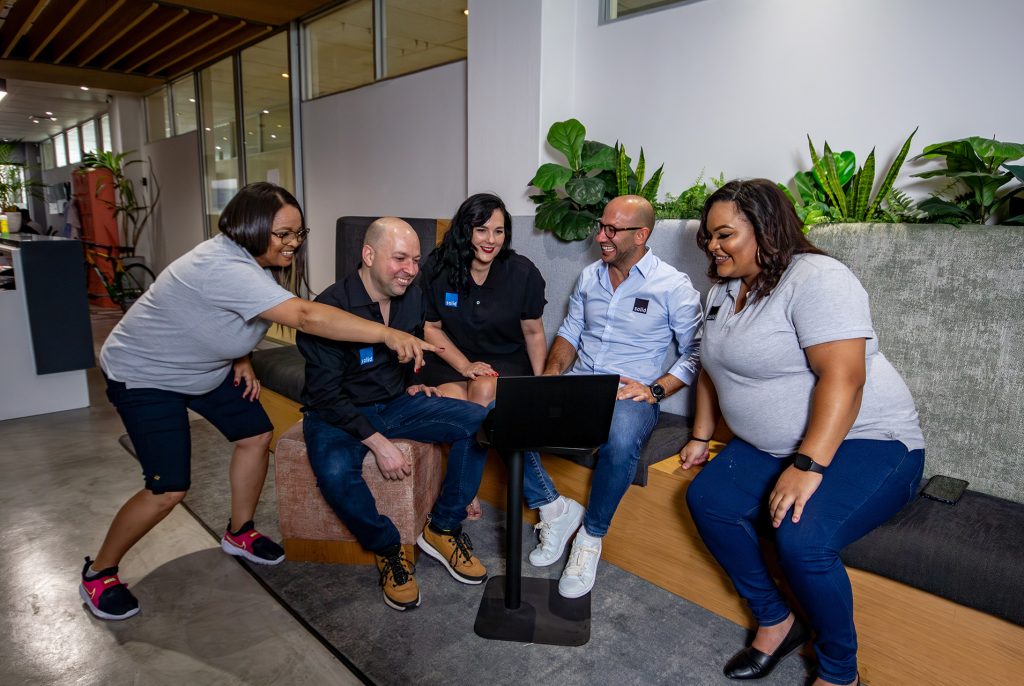
Cloud computing is one of the common business buzzwords nowadays. However, like many others, you also must have wondered what cloud services are or what the benefits of them might be.
What is Cloud Computing?
In simple terms, cloud computing is a virtual machine or server hosted in a data centre rather than on-premises. The services are managed and maintained by a CSP (Cloud Service Provider) like Solid Systems, and you can access it, store your data on it, or use it to run apps, all through the internet.
Cloud services provide on-demand access to a range of resources like apps, development tools, physical servers, virtual servers, software, Cloud data storage, analytics and more, all without your business needing to go through the hassle of provisioning, installing or maintaining them.
Plus, because the services are all cloud-based, you’ll be able to access them wherever you are in the world, and whichever device you may be using. No matter what your company’s size, cloud computing services are available to all with a monthly subscription to meet your business’ data and processing needs.
How does Cloud Computing work?
The cloud infrastructure is divided into two parts: frontend and backend.
Frontend refers to what you see – the interface that you’ll use to interact with the data and apps that are running on your virtual machine. Meanwhile, the backend processes your requests and ensures that your data is encrypted and stored safely and securely in multiple data centres around the world, without you needing to give it a second thought.
This means that even in the case of a data breach, data loss, or a security or cyber threat, your data will remain both secure and accessible, and your business can continue as normal. Your CSP will also make sure that you’ll have uninterrupted access to your services, no matter where you’re accessing them from, and no matter where they’re stored.
Types of Cloud Computing
There are four different types of cloud computing that you can use depending on your business’ security and access needs:
- Public Cloud
Public cloud is the most cost-effective cloud computing option. Your virtual machine will be stored in an off-site data centre that is used by multiple other organisations and individuals. This won’t affect the security of your data, but does mean that the resources are shared, allowing for a lower-cost solution for businesses that don’t need a dedicated network. - Private Cloud
A Private cloud solution is perfect for businesses that have more stringent security needs. You’ll be provided with access to resources and services on a dedicated network, used exclusively by your company. It can either be set up on-site, ensuring that your business will have access to data immediately in the case of a data disaster, or it can be hosted virtually by your CSP. - Hybrid Cloud
Hybrid cloud infrastructure is the best of both worlds, so to speak. It combines the low-cost resource sharing of a Public cloud network, with the reliability and dedication of a Private one when you need it most. It gives your business more flexibility and helps to optimise your existing IT infrastructure and security while keeping storage costs low and compliance assured.For example, you may want to store your emails on a Public cloud network, while your highly sensitive data is stored on a Private one for more added control and peace of mind.
Community Cloud
A Community cloud infrastructure is a system where more than one organisation uses a private cloud network while benefiting from all the data security measures. If, for example, your company consisted of several franchises or you had offices based around the globe, you could use a community cloud. All your data will be hosted in the private cloud platform, and all stakeholders would have access to the data and apps that they need to operate.
What Are the Cloud Services Offered?
Cloud services are divided into four categories known as SaaS, IaaS, PaaS, and FaaS.
- SaaS (Software as a Service)
SaaS provides on-demand software apps online on a subscription basis. You can access the apps and software on any device that has a web browser. The SaaS provider will host and manage the IT infrastructure, while ensuring end-to-end software upgrades, security patching, and system maintenance. - IaaS (Infrastructure as a Service)
IaaS provides IT infrastructures like servers, virtual machines (VMs), storage space, and network provisioning on a pay-as-you-go or monthly subscription basis. IaaS ensures that you’ll have uninterrupted access to the IT resources you and your employees need without having to worry about system maintenance. - PaaS(Platform as a Service)
PaaS provides the servers, networks, databases, and storage needed for app development and publishing. It offers an on-demand programming environment for testing, deploying, managing, and delivering software apps while your CSP ensures that the apps have a stable environment to run in. - FaaS (Function as a Service)
FaaS helps you develop and launch microservice apps without managing the complex IT infrastructure associated with them. It is also called serverless computing, as the entire system of managing physical or virtual servers, operating systems, and web server hosting is taken care of by the CSP.
How Do You Build A Business Case for Cloud Computing?
Cloud computing comes with loads of benefits, but before you decide to invest in cloud migration as a business, you need to calculate the costs associated with it. There’s the cost of moving your existing IT systems, and the cost of running a cloud platform once it’s been migrated. How do these costs compare to those of keeping the system on-premises. These are just some questions to ask when building a business case for cloud computing. And this is where a company like Solid Systems can help.
Why Solid Systems?
Solid Systems works with you to offer a seamless transition of your existing IT infrastructure into the cloud. We provide customised IT solutions to suit your business needs and ensure uninterrupted operations. Our IT pros make the migration process quick, easy, and convenient. But we don’t just offer cloud services.
We collaborate with businesses and build relationships, ensuring that you’re using the best cloud solutions for your needs and helping your business to grow without facing downtime. So, go ahead and get in touch with us today to start your cloud transition.
Popular Searches
- Benefits of Cloud Computing
- How Cloud Computing Is Ideal For Small Businesses
- Types of Cloud Storage
- Business Benefits of Cloud Migration
- Benefits of Cloud Storage
- What do you mean by Network Security?
- Types of Network Security Threats
- Why IT Security is Important?
- Different Cyber Security Threats
- Types of Cyber Attacks





